Destination: Tunisia

Tunisia Tours
Hand crafted tours for mature world travellers
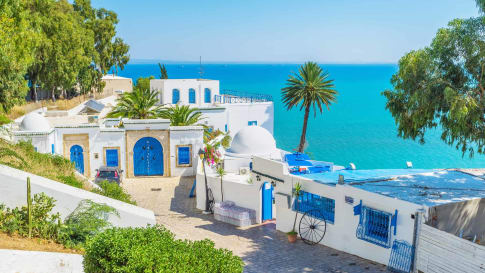
14 days
Apr, Sep, MarTour of Tunisia
Visiting Tunisia
Join Odyssey Traveller on this small group tour of Tunisia in North Africa for couples and solo travellers, where Carthaginian ruins sit side by side with Roman monuments, grand Islamic mosques, Arabic souks and medina, and honeycomb-like Berber cave dwellings and hilltop villages.
From A$10,995 AUD
View TourArticles about Tunisia
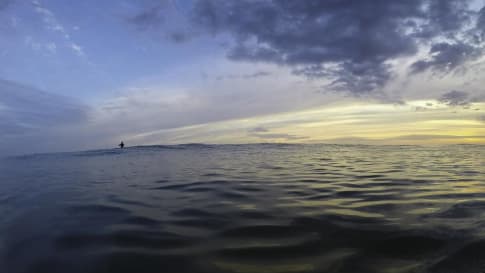
Pillars of Hercules
Article about the history of where the Mediterranean sea meets the Atlantic ocean for the explorers from Crete, Italy, Spain, including the Phoenicians and the Romans. For senior couples and mature solo travelers interested in small group educational tour.
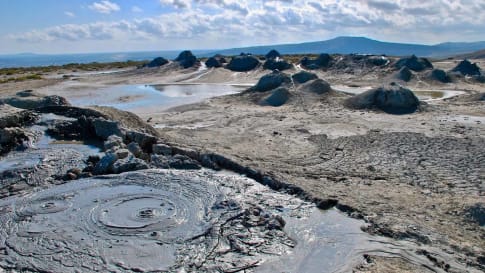
10 Unimaginable Destinations: The Definitive Guide
Experience and knowledge shows that they are plenty of places in the world still to be explored by the curious. Our collection of small group tours for seniors as well as mainstream tours to France or Italy can take the traveller as a couple or solo traveller to places of curiosity such as Panama or Iran the list is endless for the curious.

The Phoenicians and Purple Dye
Article supporting tours to Morocco, Tunisia, Spain, Sicily and Crete. The Phoenicians where one of the empires controlling the Mediterranean sea from the 11th to 13th century. This article is for small group educational tours for senior couple and mature solo travellers joining a program.
Touring Tunisia
The need to know
Getting around
Traveling through Tunisia is a seamless experience, whether you’re embarking on an odyssey via a small coach or opting for the convenience of taxis, which are both abundant and cost-effective. The country boasts a modern road network that intricately navigates through its diverse landscapes, linking various towns and villages. For those looking for an alternative mode of transportation, buses offer reliable services that connect major cities and smaller towns, providing a practical travel solution. In Tunis, travelers can also utilize the efficient Tram network known as the “Métro lége” to move around the capital city with ease.
Accommodation
In urban hubs, Odyssey accommodations are strategically situated in central 4-star hotels across Tunisia, ensuring convenient access to public transportation. In more remote towns or rural settings, our preference leans towards family-operated hotels or cosy guesthouses. For extended tours where you remain in one place for the duration, we opt for serviced apartments to provide a comfortable and homely stay.
Tour Guides
Odyssey always engages local guides with regional knowledge to ensure an authentic experience during which you can learn as much as possible about the history and culture of places you visit.
Geography environment and weather
Located in the northern part of Africa, Tunisia is bordered by Algeria to the west, Libya to the south, and the Mediterranean Sea to the east and north. The country is characterized by the majestic Atlas Mountains in the northern region and the vast Sahara Desert in the south. The bustling capital of Tunisia is Tunis. The climate in Tunisia is predominantly Mediterranean, with mild winters featuring moderate rainfall and hot, dry summers. To make the most of your visit, it is advisable to keep track of weather updates and dress appropriately based on the season you plan to travel.
World Heritage sites
Tunisia boasts 8 UNESCO World Heritage Sites, each holding profound historical and cultural significance. These sites are treasures waiting to be explored, offering a glimpse into the country’s rich past. Among the standout locations is the archaeological site of Thugga/Dougga, showcasing the grandeur of a Romanised Numidian town through its remarkable ruins. The Medina of Tunis stands as one of the earliest Arabo-Muslim towns in the Maghreb, dating back to 698 A.D., while Kairouan, the primary holy city in the Maghreb region, delights visitors with its stunning architectural legacy, notably the Great Mosque. Each of these sites is a testament to Tunisia’s diverse heritage and is well worth a visit for those able to experience their awe-inspiring beauty firsthand.
Festivals and events
Tunisia boasts a rich tapestry of vibrant festivals that celebrate its music, crafts, and cultural heritage. Among these, the renowned Yasmine Hammamet festival stands out for its dynamic live music performances, while the international Jazz festival in Tabarka attracts music enthusiasts from around the globe. Another notable event is the Tunisian Medina festival, a captivating celebration held in the heart of Tunis during the sacred Islamic month of Ramadan. This festival comes alive with bustling street shows, medieval attire, and an array of jubilant festivities that honor Tunisia’s rich cultural legacy.
Reading list
In Kenneth Perkins’s second edition of “A History of Modern Tunisia,” the focus extends from 2004 to the present day, with a notable exploration of the Tunisian revolution of 2011. This revolution marked the inception of the Arab Spring and sparked analogous movements throughout the Arab world. The book commences with an overview of Tunisia leading up to the French protectorate in 1881, delving into the impact of colonialism and the evolution of a nationalist movement that led to the termination of the protectorate in 1956. It further analyses the initial three decades of independence, during which anticolonial leaders consolidated political power, devised economic strategies, and championed social and cultural reforms to modernize the state and society. The concluding chapter scrutinizes the 2011 revolution and Tunisia’s pivotal role in the Arab Spring. This comprehensive narrative provides an unparalleled English-language account of Tunisia’s history, spanning a wide timeframe and offering a detailed exploration of the nation’s evolution.
“Ifriqiya: Thirteen Centuries of Art and Architecture in Tunisia” embarks on a journey through the Islamic architecture of the Maghreb, unveiling a civilization that has produced significant works of art across centuries. Various Islamic dynasties such as the Abbasids, Aghlabids, Fatimids, Zirids, Almohads, Hafsids, and Ottomans, along with Islamic schools and movements, have left an indelible mark on Tunisia’s artistic landscape. This Islamic artistry in Tunisia serves as a convergence of diverse influences, blending local artistic customs with elements from Andalusia, the East, and Arab, Roman, and Berber traditions against the backdrop of its rich natural surroundings.
Eating and Drinking
Tunisian cuisine boasts a bold and diverse culinary landscape infused with a rich tapestry of influences from various historical powers like the Romans, Arabs, Turks, and French. Reflecting Islamic dietary laws, the consumption of pork is strictly forbidden in Tunisia. The traditional meat staples include lamb, beef, as well as more unconventional options like goat, camel, and poultry. Signature dishes such as lamb tagine, shorba (spicy vegetable and beef soup), brick (a savory filled pastry), and fingers of Fatima (pancakes with minced meat and eggs) showcase the country’s gastronomic prowess. Typically, these dishes are accompanied by couscous and grilled vegetables. Mint tea and coffee stand out as the quintessential beverages in Tunisian culture. While the Islamic law prohibits alcohol consumption, Tunisians sometimes disregard this restriction, with many indulging in alcohol in hotels and restaurants where it is freely available. Supermarkets also stock alcoholic beverages and beer during specific hours, catering to both locals and tourists.
Health and safety
Although much of the country is safe to travel in, however independent travellers should consider avoiding the boarders to Libya and Algeria regions due to underlying local tensions.
Electrical supply
Whenever you travel overseas, it’s always wise to take an appropriate travel adaptor. The electricity supply runs at 230V, 50Hz. Tunisian plugs, types C and E, have two round pins. These are shared most of the European countries, including France, Spain and Germany.
Highlights
The best of Tunisia
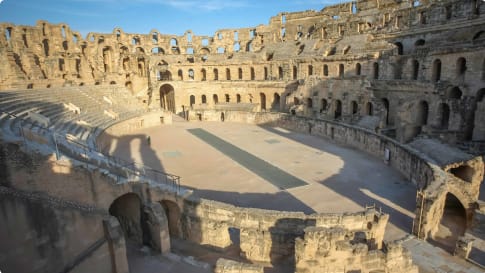
El Djem Amphitheater
this Roman ampitheater's walls surrounds the city of El Djem. Well preserved and one of the best examples of amphitheater architecture left standing in the world.
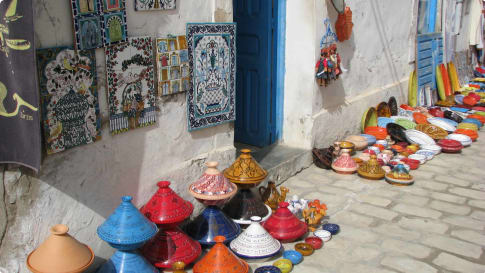
Djerba
influenced by Berber, Arab, Jewish and African cultures, is a pictureperfect small island, known for its stunning beaches, handicraft markets and port.

Ancient ruins of Carthage
outside Tunis, is UNESCO World-Heritage-listed and once the city of the seafaring Phoenicians forever memorialized in the Punic Wars.
Tour Reviews
Both cruise ships exceeded our expectations for cleanliness and quality of service.
Participant 2018
Egypt tour: escorted small group history & cultural tour of Egypt
This tour was excellent, encompassing not only historical Egypt but also introducing us to modern Egypt. The varied travel by bus, small cruise ship and air, contributed to our interest and enjoyment. The extremely high quality of our tour leader, the Egyptologist and the local guide enhanced our knowledge, understanding and enjoyment of this tour.
Participant 2018
Egypt tour: escorted small group history & cultural tour of Egypt
A tour beyond expectation. Egypt has so much to offer from the past and Odyssey did a fantastic job.
Participant 2018
Egypt tour: escorted small group history & cultural tour of Egypt
This was a fascinating program and the support was outstanding
Participant 2018
Egypt tour: escorted small group history & cultural tour of Egypt
The Victoria Falls were an outstanding treat.
Participant -16
Southern Africa Tour | Fully Escorted Africa Tour for Seniors
THE TRIP WAS FANTASTIC.
BARRIE ASHTON
Southern Africa Tour | Fully Escorted Africa Tour for Seniors
Mal was a wonderful Program leader. She would be the best tour leader we have ever experienced. Her obvious experience and her calm demeanor contributed greatly to the cohesiveness of our group which, in turn, contributed to our enjoyment.
Participant 2018
Egypt tour: escorted small group history & cultural tour of Egypt
Our Egyptologist, Mohammed, was excellent. Not only was he a very experienced tour guide and very knowledgeable, he was very organised and friendly and we always felt secure with him. He contributed greatly to our enjoyment of the trip.
Participant 2018
Egypt tour: escorted small group history & cultural tour of Egypt
FAQs
What is the time zone?
Tunisia has a single time zone, Central European Time (UTC+1). Tunisia does not observe daylight savings.
Is tipping customary in Tunisia?
When traveling independently in Tunisia, tipping appropriately for services is customary, akin to many European countries. At restaurants, it is recommended to tip around 10-15% of the bill. In more casual dining settings, a few dinars are typically appreciated. When purchasing drinks, rounding the bill up to the nearest whole figure or leaving the change is considered polite. If you are on an Odyssey tour, tipping is already taken care of to ensure a hassle-free experience.
What is the internet access like in Tunisia?
Internet access is easily accessible, and most hotels and many cafes will be able to offer it.
Can I use my mobile/cell phone while in Tunisia?
Ensure you check with your mobile phone provider to confirm if you can make calls and use data while in Tunisia. Several providers may have a daily fee option that enables you to utilize these services without incurring additional charges. However, it is crucial to notify your provider about your international travel plans to avoid any service interruptions due to suspicious activities, akin to how a bank may freeze your account for unusual transactions.
Responsible travel tips for Tunisia
- To enhance the quality of the content provided regarding travel tips for Tunisia:
- Begin your journey by familiarizing yourself with local greetings to establish a connection with the people. Despite the prevalence of English speakers, embracing the native language enriches your cultural immersion.
- Keep a business card from your hotel handy to facilitate your return if you happen to lose your way. This simple precaution can be a lifesaver in unfamiliar surroundings.
- Travel with peace of mind by ensuring you are protected by comprehensive travel insurance. For personalized advice on choosing the right coverage, don’t hesitate to reach out to Odyssey for expert assistance.
- When exploring independently, be proactive in checking the operating hours of shops and museums to optimize your visit. Remember that many museums and galleries are closed on Mondays, and be mindful of any public holidays during your stay to plan your itinerary effectively.
- Notify your bank about your international purchases to prevent any disruptions in card usage due to security measures. Identify ATMs and banks compatible with your cards in advance to minimize transaction fees and ensure seamless access to cash abroad.
- Prior to departure, obtain a variety of dinar denominations for convenience during your trip. While avoiding excessive cash on hand, having adequate local currency facilitates payments at establishments that may not accept cards, streamlines tipping, and minimizes reliance on credit card transactions.
